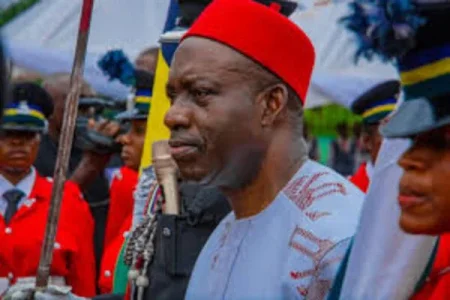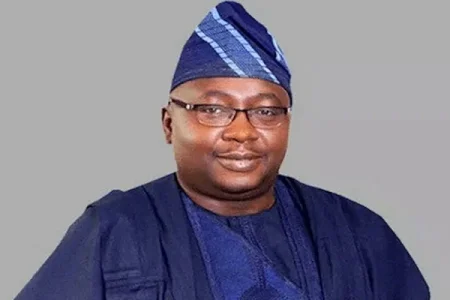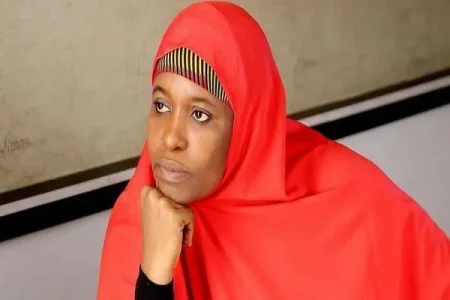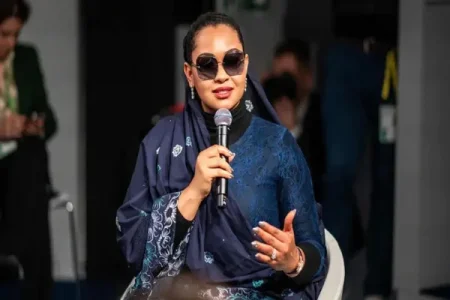
Anambra State Governor, Chukwuma Soludo, stirred controversy during the inauguration of 12 kilometers of roads in the Okpoko area when he openly admitted to neglecting the repair of bad roads in the constituency of an opposition politician. The revelation, made during a public address on Monday, has stirred widespread condemnation and raised questions about the governor's commitment to equitable development.
Soludo, while addressing the crowd, candidly revealed that he had intentionally ignored calls to address the poor state of Nwokedi Street, citing the opposition affiliation of the area's House member at the time. "I rejected the advice to develop Nwokedi Street because the House member representing the area was formerly in the opposition," Soludo stated. He further emphasized that he only approved the road's rehabilitation after the said politician joined his party, the All Progressives Grand Alliance.
The governor's admission of prioritizing development based on political allegiance has ignited fierce criticism from various quarters. Many argue that such actions undermine the principles of democracy and equitable governance. Soludo's acknowledgment that he had seen the deteriorating condition of the roads but chose not to act due to political considerations has particularly drawn ire from the opposition and civil society groups.
"One day, I was taking a walk, one guy showed me a road which the honourable member representing Ogbaru constituency 1, Noble Chukwunoso Igwe, had spoken to me about and because he was an opposition, I could not do anything on the road then," Soludo recounted, further highlighting his selective approach to infrastructure development.
The timing of Soludo's statement, coming on the heels of marking two years in office, has intensified scrutiny of his administration's governance practices. Despite touting achievements such as not borrowing to run the state and forgoing state salaries, Soludo's admission of neglecting critical infrastructure based on political affiliations has overshadowed his tenure's accomplishments.
As Anambra State grapples with pressing development challenges, Soludo's remarks serve as a stark reminder of the complexities inherent in governance and the imperative of ensuring inclusive and non-partisan decision-making processes. Critics argue that true progress can only be achieved when leaders prioritize the collective welfare of all citizens, irrespective of political considerations.




